What have independent experts who have checked the research said about the Maharishi Effect?
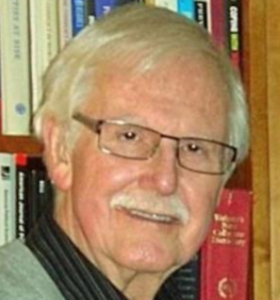
Ted Gurr, emeritus Professor of Government and Politics at the University of Maryland and distinguished scholar in the domain of conflict analysis, stated:
“In the studies I have examined on the impact of [Maharishi Effect] on conflict. I can find no methodological flaws, and the findings have been consistent across a large number of replications in many different geographical and conflictual situations. As unlikely as the premise may sound, I think we have to take these [Maharishi Effect] studies seriously.”
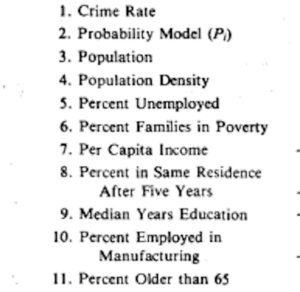
Raymond Russ, PhD, Professor of Psychology, University of Maine and former editor of the Journal of Mind and Behaviour, commenting on one research study, also declared:
“The hypothesis definitely raised some eyebrows among our reviewers. But the statistical work is sound. The numbers are there. When you can statistically control for as many variables as these studies do, it makes the results much more convincing. This evidence indicates that we now have a new technology to generate peace in the world.”
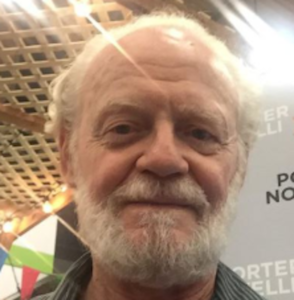
David Edwards, Professor of Government at the University of Texas at Austin, commented:
“The claim can plausibly be made that the potential impact of this research exceeds that of any other ongoing social or psychological research programme. The research has survived a broader array of statistical tests than most research in the field of conflict resolution. I think this work, and the theory that informs it, deserve the most serious consideration by academics and policy makers alike.”
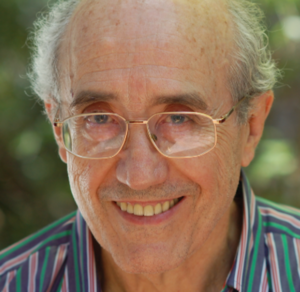
Dr Juan Pacual Leone, Professor Emeritus of York University in Ottawa Canada, wrote:
“The possibility is that we have made one of the most important discoveries of our time.”

Ken Pease, formerly Professor of Criminology at the University of Huddersfield and a member of the British Home Office National Crime Prevention Board 1993-96, succinctly summed up the research as follows:
“I was initially sceptical but having studied the research completed to date, I have concluded that these studies on the [Maharishi Effect] have subjected theory to proper empirical tests. They have shown sound results that demand serious interest. This method should be applied more widely in programmes to reduce crime.”
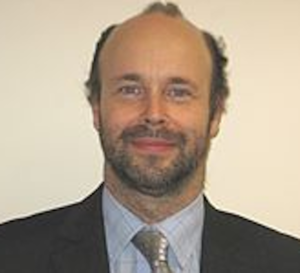
Huw Dixon, Professor of Economics at Cardiff University, Wales:
“I have been following the research on Maharishi’s [defence] as it has developed over the last twenty years. There is now a strong and coherent body of evidence showing that (this approach) provides a simple and cost-effective solution to many of the social problems we face today. This research and its conclusions are so strong, that it demands action from those responsible for government policy.”

Anonymous Peer Reviewer of Research on Maharishi Effect for the Journal of Conflict Resolution:
“It is possible that people’s auto accidents and fire and burglaries are influenced by the social environments around them. Days that are more stressful, people are less cautious in traffic and they have more traffic accidents or they leave the iron on or whatever else. So I’m willing to believe that the social environment around can influence those behaviours…That’s actually where the research gives me much harder problems than the conflict. It’s the little stuff.”
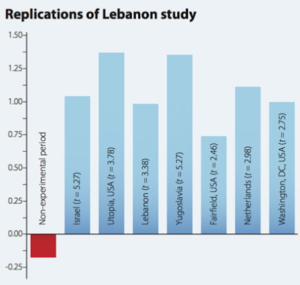
Mark Novak, Ph.D., sociologist at the University of Winnipeg:
“The repeated effect is very persuasive. You might discount it once or twice, but seven times gets your attention.”
